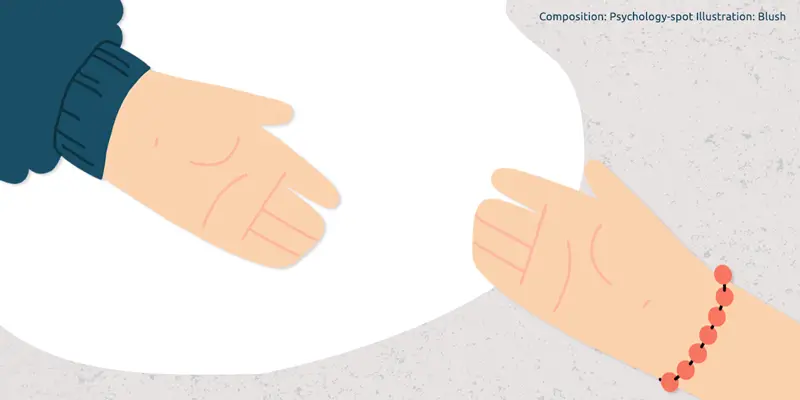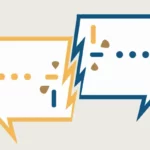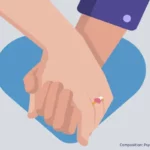
There are situations where we must offer our help, others not. There are situations where our assistance allows the other person to grow and there are situations where we can cause only damage. So, sometimes the best way to help is not to do it.
Be “cruel” to be kind
The society teaches us that we must always help. We have internalized it so much that the message has become an absolute rule. Consequently, we believe that if we do not help someone we are bad people. However, nothing is white or black, life is full of nuances, so sometimes the best help we can offer is to let the others do themselves.
Sometimes, not helping is the best form of showing love or empathy. This is confirmed by psychologists at the University of Plymouth who found that when we’re emotionally connected with someone and are empathetic, we are prepared to induce negative emotions, if we believe that these can be of some long-term benefit.
These psychologists recruited 140 people who had to participate in a computer game with a fellow who did not know and who was called “Player A”. But, actually, that player did not exist.
However, the participants received a note, apparently written by player A, referring to the recent break of a couple relationship and how bad he felt about it. The psychologists told some of the participants to try to imagine how that person felt, with the aim of promoting empathy. Others were said to forget the question.
Later, it was explained that the goal of the game was to shoot at enemies (comparison strategy). Others were involved in a different game where the goal was to escape from a labyrinth (avoidance strategy).
The participants then listened to some music and small readings that were about to stir up different emotions. The researchers asked them to choose which pieces to make listen to Player A and how angry, dreadful, or neutral, they wanted this person to feel.
The results showed that when the participants were emotionally connected with the player and felt empathy, they were more likely to generate specific negative emotions depending on the ultimate goal of the game. When it came to a confrontation game they caused anger and if the game was to avoid, fear.
This indicates that when we are worried about a person, we may be willing to generate negative emotional states if we feel they can be beneficial in the long period. In fact, this is a strategy that many parents used, perhaps without being fully aware of that, such as when they see that their child is not studying enough for an exam and frighten him to motivate him to engage more.
How do we know when our help “does not help”?
The precious interpersonal relationship is not only the one that makes us feel good and supportive, but also the one that allows us to grow. The supportive person is not the one that always facilitates our path, but the one that helps us grow and mature. After all, we mature with damages, not with the years.
To understand this dynamic, we can rely on the concept of Zone of Proximal Development, which is used in the field of education. This concept tells us that to improve someone’s skills, we need to give him or her the right level of support for the change. Our role is limited to helping the person to develop his or her potential.
Of course, it is not always easy to find the right balance. However, these principles can serve to determine when your help does not help the other:
– You do the things in his or her place rather than help him or her do it alone
– You take the responsibility rather than allow him or her to deal with the consequences of his or her actions
– Your help keeps him or her from developing his or her potential
– Your help becomes a comfort zone for the other that keeps it from growing
In any case, it is not about abandoning the people we love but knowing how to measure our intervention so that the person can find his or her way. After all, the greatest manifestation of love, and even the most difficult, is to allow the others to be themselves.
Source:
López-Pérez, B. et. Al. (2017) Cruel to Be Kind: Factors Underlying Altruistic Efforts to Worsen Another Person’s Mood. Psychological Science; 1:956797617696312.



